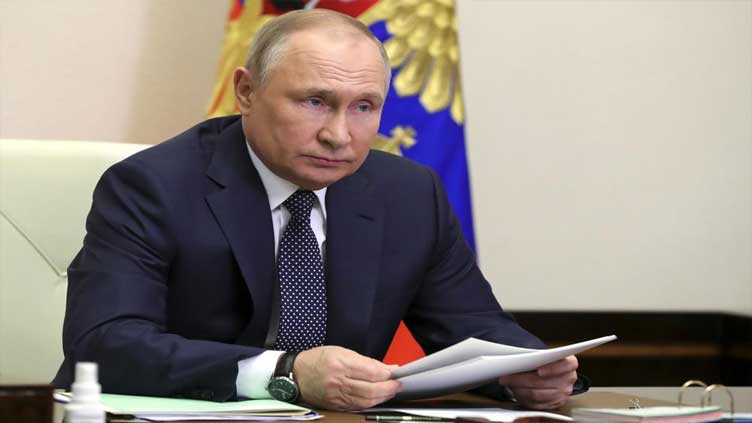Kremlin decree: Foreign currency can still buy natural gas

Business
Contracts will be stopped if buyers don’t sign up to the new conditions
ROME (AP) — “Unfriendly countries” can continue to pay for natural gas in foreign currency through a Russian bank that will convert the money into rubles, according to a Kremlin decree published by state media Thursday, a day after the leaders of Italy and Germany said they received assurances from President Vladimir Putin.
Putin talked tougher, saying Russia will start accepting ruble payments starting Friday for Western countries that imposed sanctions over its conflict with Ukraine. He said contracts will be stopped if buyers don’t sign up to the new conditions, including opening ruble accounts in Russian banks.
“If these payments are not made, we will consider it a failure of the buyer to fulfil its obligations, with all the ensuing consequences,” Putin said.
The decree Putin signed and published by state news agency RIA Novosti says a designated bank will open two accounts for each buyer, one in foreign currency and one in rubles. The buyers will pay in foreign currency and authorize the bank to sell that currency for rubles, which are placed in the second account, where the gas is formally purchased.
Speaking shortly after Putin’s announcement, German Chancellor Olaf Scholz gave a noncommittal initial response to Russia’s new conditions. He said the gas contracts stipulate payment mostly in euros and sometimes in dollars. He said he made clear to Putin in a phone call Wednesday “that it will stay that way.”
“What his ideas are for how this can happen is what we will now look at closely,” Scholz told a reporters in Berlin. “But in any case, what goes for companies is that they want to and will be able to pay in euros.”
Italian Premier Mario Draghi said earlier Thursday that he had also received assurances from Putin that Europe would not have to pay in rubles and diffused fears that Moscow would cut off supplies of gas used for heating and electricity.
Draghi said Putin assured him during a 40-minute phone call Wednesday evening that “existing contracts remain in force. ... European companies will continue to pay in dollars and euros.”
Putin announced last week that Russia will demand “unfriendly” countries pay for natural gas only in Russian currency, instructing the central bank to work out a procedure for buyers to acquire rubles in Russia. That sent already high gas prices even higher amid fears it could be a prelude to a natural gas shutoff, which could disrupt Europe’s economy and hurt Russia’s finances. The Group of Seven major economies, including Italy and Germany, agreed to reject the demand.
Draghi said Putin gave a lengthy explanation of how to both maintain the payments in euros and dollars while satisfying Russia’s “indication of payments in rubles.”
Draghi said he referred the discussion to experts and that analysis was underway “to understand what it means,” including whether “European companies can continue to pay as foreseen, if this means something for the ongoing sanctions.”
“The feeling is one I have had since the beginning, that it is absolutely not simple to change the currency of payments without violating the contracts,″ Draghi said.
Draghi also told the foreign press corps that Europe is pushing for a cap on gas prices with Russia, saying its payments are funding the war in Ukraine and the prices being paid by Europe are out of line with the global market.
“We — Germany and Italy, along with other countries that are importers of gas, coal, grains, corn — are financing the war. There is no doubt,” Draghi said. “For this reason, Italy along with other countries, are pushing for a cap on the price of gas. There is no substantial reason that the price of gas is so high for Europeans.”
Draghi noted that Russia has no other market for its gas, giving Europe room to maneuver. Asked about the risk that Russia would respond by turning off the taps, Draghi said, “no there is no danger.”
The prospect of continued gas deliveries in exchange for euros drew a cautious welcome from German industry.
“It’s good news at least in the short term, because Russian gas deliveries can’t be replaced in the short term,” Achim Dercks, the deputy managing director of the Association of German Chambers of Commerce and Industry, told RBB24 Inforadio on Thursday.
He noted that companies are concerned that any cutoff would affect industry in particular, “but ultimately that would have severe economic effects for us all.”

